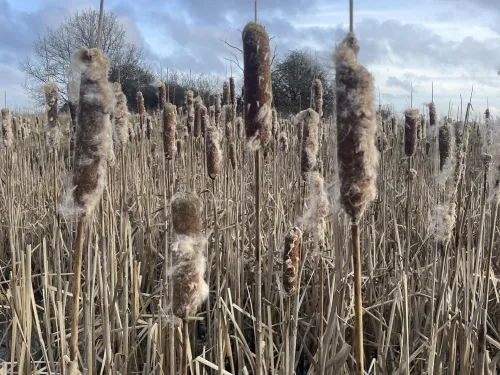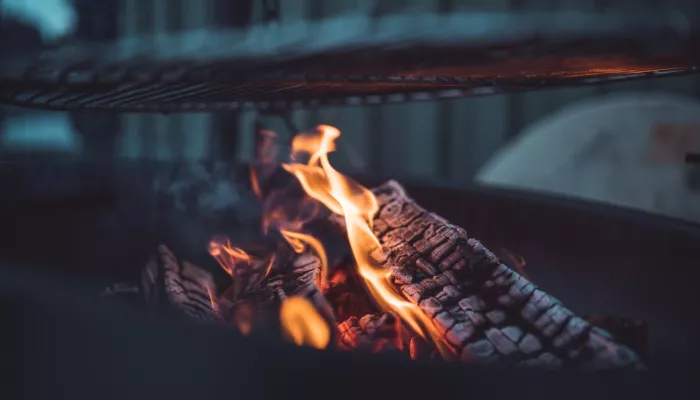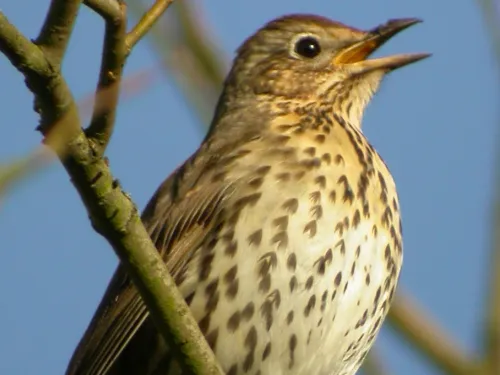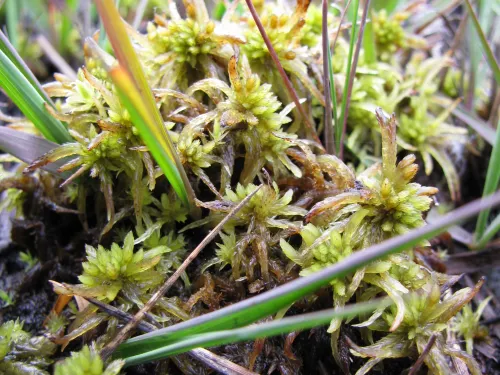
February on Hothfields: A spotlight on reed mace
Long-time volunteer Margery Thomas explores the wildlife at Hothfield Heathlands in February, where reedmace tells a story...

That’s not the worst of it, sometimes the damage caused by these fires is permanent. Once the soil reaches a certain temperature, all the seeds within it are killed, as are the fungi and other tiny living things that support the plant growth you see above ground. Without this vital, hidden ecosystem, habitats struggle to ever recover. The plants and animals simply never return. The area might turn green again, but this is often with the more common plants that can grow anywhere, not the specialist that make these nature reserves so unique.
Woodland fires are completely different but the effect is the same. If sufficient heat is generated so that the dead wood and peaty soils beneath the surface are ignited, these can burn slowly and intensely for days. They are incredibly difficult to track, running underground, following dead roots and buried branches, popping up sometimes great distances from the original fire. You can step on a normal looking piece of earth and have it collapse into a fire pit under your feet. Trees that appear unaffected, wither and die over the following months, their roots charred and broken.
No-one sets out to turn their picnic into an ecological mess, but BBQs are really difficult to manage safely in the countryside. They take hours to cool down. Often it’s a latent spark, long after the BBQ has been left behind that does the damage. Sometimes people accidently add an accelerant – by placing it in a bin whilst the coals are still warm. Paper, thin plastic and even bits of food begin to smolder too and before you know it the whole bin is on fire, and it’s a much hotter and more intense fire than the BBQ alone could have managed to create.
Burning bins also have an impact on the wildlife that is hidden. Damage to our nature reserves through BBQs is much more common than wild fires and is hugely expensive, diverting much needed funds and staff time away from conservation and into repair and maintenance of infrastructure. It’s not just bins we have lost because of BBQs – picnic benches, memorial benches, sculptures, and even hides have been damaged or destroyed because they have been used to hold a BBQ while it is in use.
Charcoal is a form of wood – so to burn charcoal, your BBQ must be hot enough to burn wood. I know it sounds obvious but I’ve lost count of the amount of times I’ve had to explain that to someone who is burning a hole through a picnic table. Barbeques can be hot enough to melt tarmac – and has led to potholes forming the following winter long after the BBQ season has ended. BBQs are often placed on footpaths where the grass is short, but they can still kill the vegetation underneath, even if you damp down the area first. The inert soil becomes dry and dusty and gets worn away or blows away, creating potholes and trip hazards that need to be dealt with.
Repairs to our nature reserves run into their thousands every year. Wildfires kill thousands of animals each year. Please help us to protect your local nature reserve and do your cooking at home.

Long-time volunteer Margery Thomas explores the wildlife at Hothfield Heathlands in February, where reedmace tells a story...

If December was a merry berry month for humans celebrating mid-winter festivities, January and February are serious berry months for birds and mammals aiming to survive winter...

In our December instalment about Hothfield we focus on mosses and lichens on the reserve. Read on to find out more.